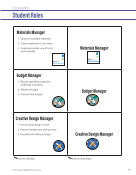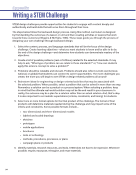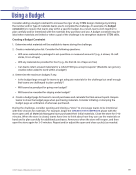Texas Essential Knowledge and Skills (TEKS) for Science Connections
Science Concepts
6(11) Earth and space.
The student understands the organization of our solar system and
the relationships among the various bodies that comprise it.
(C) The student is expected to describe the history and future of space exploration,
including the types of equipment and transportation needed for space travel.
6(9)
Force, motion, and energy.
The student knows that the Law o
f Conservation of
Energy states that energy can neither be created nor destroyed, it just changes form.
(A) The student is expected to investigate methods of thermal energy transfer,
including conduction, convection, and radiation.
(B) The student is expected to verify through investigations that thermal energy moves
in a predictable pattern from warmer to cooler until all of the substances attain the
same temperature such as an ice cube melting.
Scientific Investigation and Reasoning
6(1)
The student for at least 40% of the instructional time, conducts laboratory and field
investigations following safety procedures and environmentally appropriate and ethical
practices.
(A) The student is expected to demonstrate safe practices during laboratory and field
investigations as outlined in Texas Education Agency-approved safety standards.
(B) The student is expected to practice appropriate use and conservation of resources,
including disposal, reuse, or recycling of materials.
English Language Proficiency Standards (ELPS)
3(E) Cross-curricular second language acquisition/speaking.
The student is expected
to share information in cooperative learning interactions.
460-2058 SDCS G6-8.indb 139460-2058 SDCS G6-8.indb 1397/9/2021 4:50:11 PM7/9/2021 4:50:11 PM































































































































































































































































































































